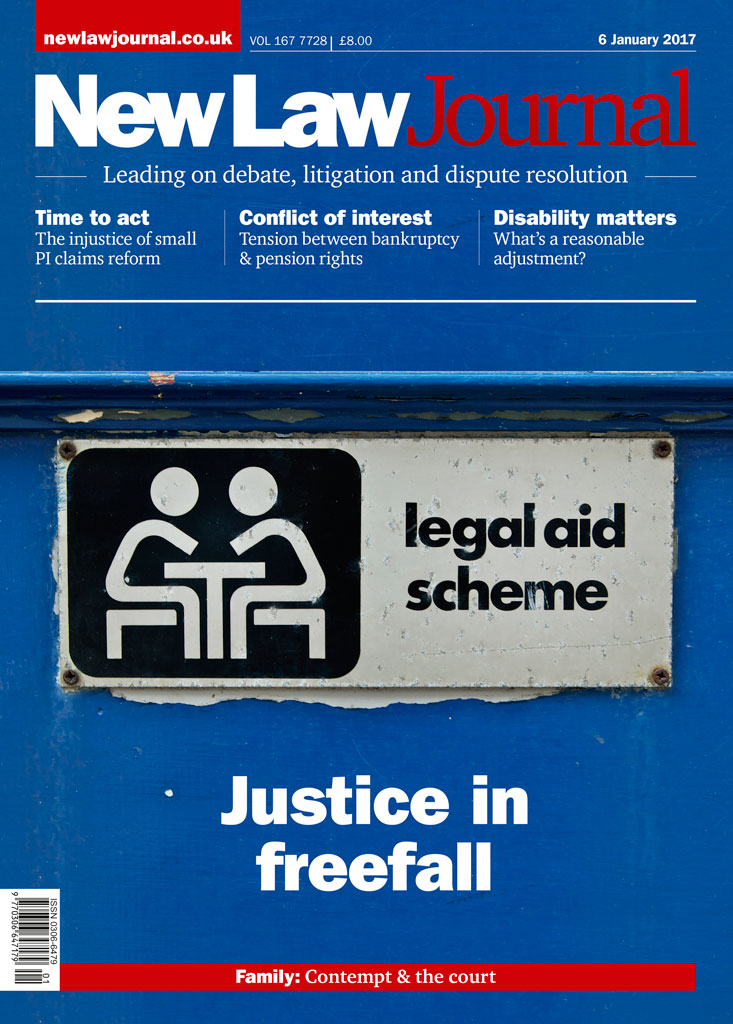
Does a bank performing an interest rate hedging product review owe the claimant a duty of care, asks Simon Duncan
Plans to reform whiplash cause frustration within the legal profession
In the final of a series of articles, Frank Maher advises upon how to tackle rogue partners & employees
The variety of application of the laws of contempt are explained by David Burrows in the first of two articles on contempt in court
The profession should unite to condemn proposals to take damages from injured people, says Patrick Allen
Confidential information held by public bodies for public purposes should be treated with the utmost care in accordance with statutory conditions, warns Nicholas Dobson
Spencer Keen explores the limits of the duty to make reasonable adjustments for disabled employees
MOVERS & SHAKERS

NLJ Career Profile: Ken Fowlie, Stowe Family Law
Ken Fowlie, chairman of Stowe Family Law, reflects on more than 30 years in legal services after ‘falling into law’

Jackson Lees Group—Jannina Barker, Laura Beattie & Catherine McCrindle
Firm promotes senior associate and team leader as wills, trusts and probate team expands

Asserson—Michael Francos-Downs
Manchester real estate finance practice welcomes legal director







